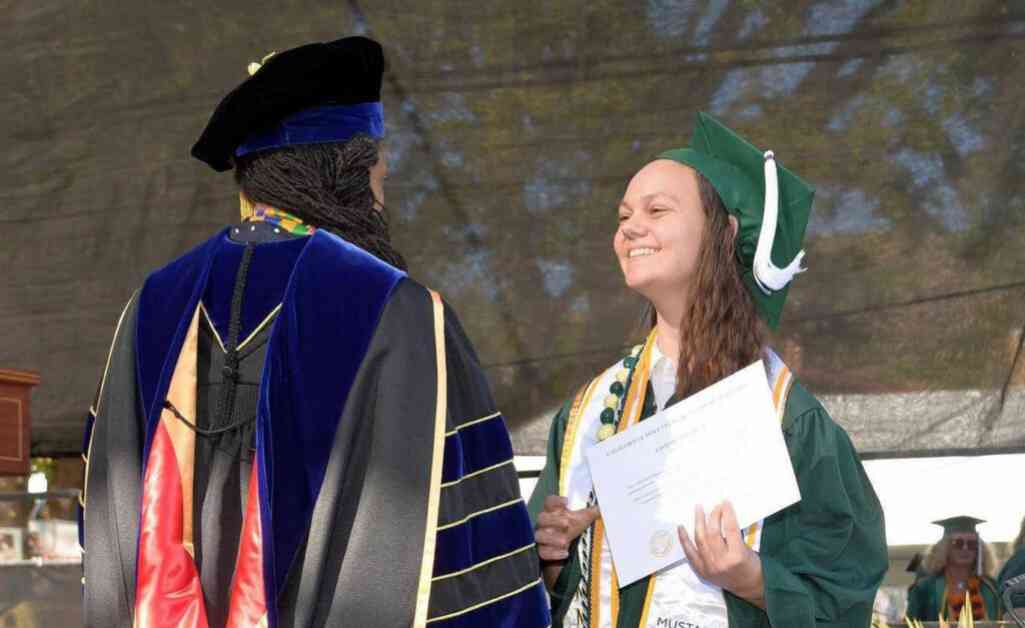Planning for Success: Graduating in Three Years
Ashley Bolter, a recent graduate of Cal Poly San Luis Obispo, shared her insights and lessons learned from completing her degree in just three years instead of the typical four. Bolter’s journey highlights the importance of careful planning, time management, and flexibility in navigating the college experience.
When Bolter first arrived at Cal Poly, she envisioned spending four years on campus and graduating alongside the friends she made during her freshman year. However, as she sat in her dorm room mapping out her academic path, she realized that she had the opportunity to graduate early if she stayed on track.
Bolter’s love for learning and her proactive approach to education played a significant role in her accelerated timeline. By taking advantage of Advanced Placement and dual enrollment classes in high school, she entered college with extra units, ultimately reducing the number of courses she needed to complete her degree. While some students may view graduating early as a missed opportunity for a full college experience, Bolter saw it as a strategic decision that aligned with her goals and circumstances.
As a first-generation college student relying on financial aid and scholarships, Bolter understood the importance of maximizing her resources and staying on track academically. Graduating early allowed her to stay on budget while still participating in extracurricular activities, internships, and part-time work. Her ability to balance a rigorous course load with other commitments demonstrates the value of effective time management and prioritization.
Striking a Balance: Academic Rigor and Personal Growth
Throughout her three years at Cal Poly, Bolter maintained an average of 20 units per quarter, allowing her to pursue her academic interests while engaging in a variety of extracurricular activities. From marching band to writing for the school newspaper, Bolter found ways to enrich her college experience beyond the classroom. By carefully planning her schedule and staying organized, she was able to juggle multiple responsibilities while still achieving academic success.
Bolter’s story challenges the notion that a traditional four-year timeline is the only path to a fulfilling college experience. With the increasing pressure on students to complete their degrees within a set timeframe, Bolter’s decision to graduate early serves as a reminder that each student’s journey is unique. By empowering students to prioritize their individual needs and goals, universities can support a more flexible and inclusive approach to higher education.
Embracing Flexibility and Personalized Paths
As the landscape of higher education continues to evolve, it is crucial for students to feel empowered to pursue personalized paths to success. Bolter’s experience highlights the importance of flexibility, adaptability, and self-awareness in navigating the college journey. By challenging the traditional norms of graduation timelines, students can create opportunities for personal growth, academic exploration, and career readiness.
Ultimately, Bolter’s journey serves as a testament to the value of carving out one’s own path in pursuit of academic and personal fulfillment. By embracing individuality, creativity, and a spirit of self-discovery, students can redefine success on their own terms. As universities and policymakers work towards creating more inclusive and equitable educational systems, Bolter’s story offers a glimpse into the potential for innovation and change within higher education.
